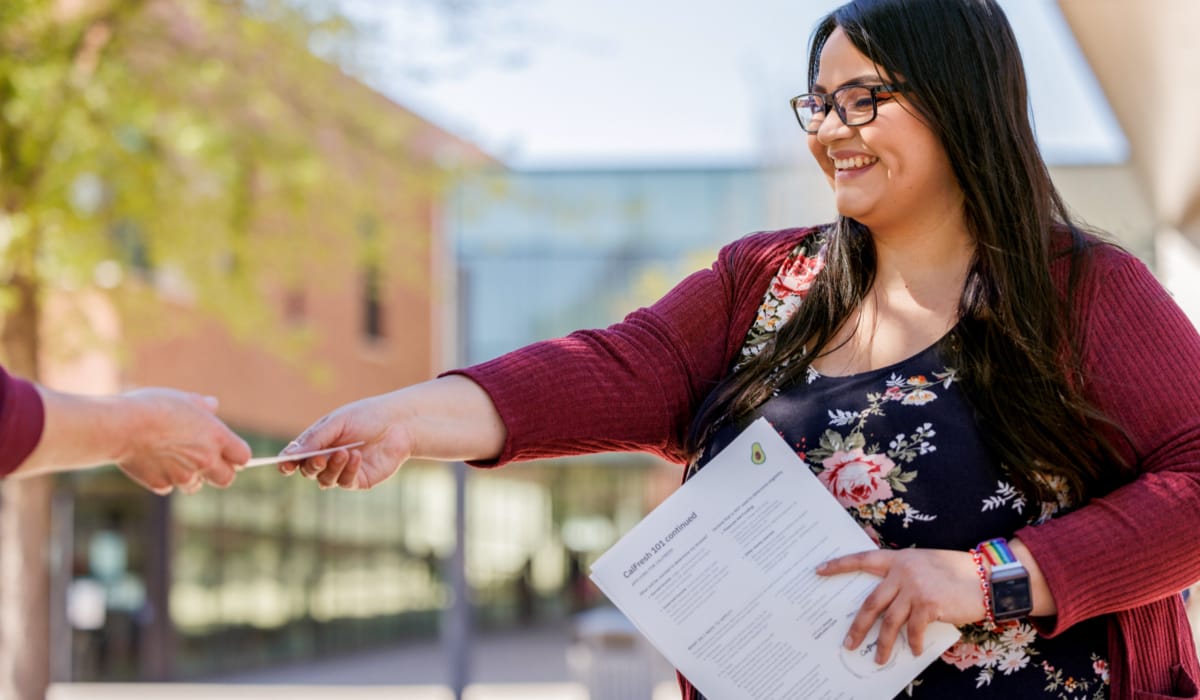
Consistent access to nutritious food is an essential part of maintaining good health, but for millions of people, having a daily meal may mean sacrificing other critical needs like medicine or transportation. This is detrimental to health and can lead to chronic conditions that may require ongoing healthcare. Anthem and the Anthem Foundation take a community-based approach to reducing food insecurity. In 2021, Foundation grants provided 5.5 million families with 30 million meals. The Food as Medicine program, a partnership with Feeding America, expanded in 2021 to reach about 100,000 people. Our grants go to specific communities where help is needed most, such as community college campuses and urban neighborhoods.
Not every neighborhood has plentiful, affordable, nutritious food choices nearby; adjusting for these “food deserts” is part of our strategy to address the whole health of the communities and people we serve.
Over 20% of Indianapolis is considered a food desert with most local grocery stores having closed over the last 40 years. Anthem Foundation is helping to address food access in the area through a grant to Local Initiatives Support Corporation (LISC) to support the Equitable Food Access in Indianapolis Neighborhoods initiative. This three-year 45 million grant brings together residents, community leaders, experts, and civic organizations to develop achievable strategies for equitable food access. The program builds on a nationwide effort by the foundation to invest up to $30 million over the next three years to address food insecurity, including helping local residents operate backyard gardens that help supply the nutrient-dense produce that is scarce in their communities.
“There’s more to being healthy than doctors’ visits and medicine,” says Anthem Chief Health Officer Shantanu Agrawal, M.D. “As we continue to address the social drivers of health, improving access to nutritious food is one of our highest priorities.”
In Kentucky, one in five residents lacks reliable access to nutritious food, and the state has one of the highest food insecurity rates in the country for older adults. Thanks to a $1.5 million donation from Anthem in 2021, Kentucky’s Dare to Care and God’s Pantry food banks will increase food distribution and outreach over the next three years to address food insecurity in their local communities.
“Far too many people in Kentucky are hurting right now,” says Brian Riendeau, executive director at Dare to Care. “Our ongoing collaboration with Anthem and their financial support gives us the badly needed resources to help our community, especially given how tough this pandemic has been on many people.”
Programs like those in Indianapolis and Kentucky illustrate Anthem’s commitment to building healthier lives and communities, complementing additional efforts by the Anthem Foundation to fight food insecurity across the country.

Belen Lopez, equity programs specialist at Foundation for California Community Colleges, shares information with students about hunger relief programs and initiatives.
A college campus is not typically where one would expect to find food insecurity. Community colleges, however, have many non-traditional students who may be older, have families, or be juggling a minimum wage job while also paying for college. Half of California community college students surveyed in 2019 said they had experienced food insecurity in the past month.2 To address this need, the Anthem Foundation gave the Foundation for California Community Colleges a $100,000 grant toward the Fighting Student Hunger project for 2020 and 2021. The project establishes student ambassadors who help connect fellow students to CalFresh, one of California’s nutritional assistance programs.
Kat Vaino is one of those ambassadors. “Students aren’t aware that there are resources at our own campus and CalFresh benefits are out there for them to take advantage of,” Kat says. “I think the information and resources we’re promoting are important.”
In Virginia, 23 community colleges took advantage of the most recent foundation grant awarded to the Virginia Foundation for Community College Education. This grant, designated specifically for hunger-relief initiatives, allowed these colleges to set up or expand food pantries on campus, give students grocery gift cards, and offer nutrition education. The grant proved essential to students during pandemic-related campus closures that began in 2020 and continued into 2021.

It’s a challenge knowing that [college] is the only way to pull myself up out of poverty, but also it drives me into so much debt. Every semester I choose between a $300 textbook or eating for several weeks.



